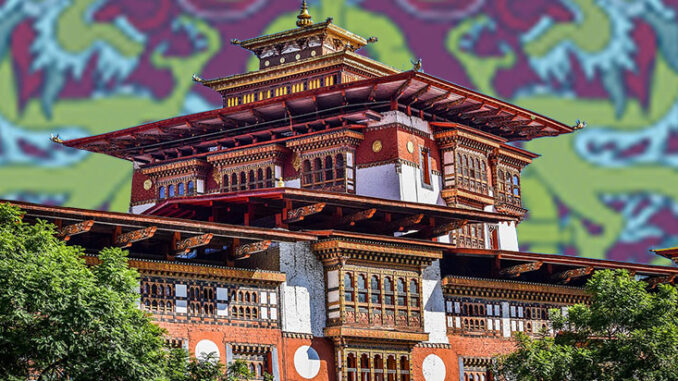
This December 11, 2020, the Himalayan Kingdom of Bhutan’s parliament approved a legislation to ease restrictions on same-sex relationships. The lawmakers in the Himalayan country voted to amend the penal code, which states that “sodomy or any other sexual conduct that is against the order of nature.”
In June last year, the Lower House of parliament made it a priority to officially adopt a more open and accepting attitude to same-sex relationships. This legislation is the first concrete step toward that goal.
Bhutan’s new law, which passed both houses of Parliament, amended from 2004 a penal code adopted from criminal law from the states, which stated that same-sex marriage is “unnatural.” Sections 213 and 214 of the penal code criminalized homosexuality, interpreted as “unnatural sex.” It grew from an effort of Asian ministries to prevent H.I.V in these countries. The penalty of engaging in prohibited sexual conduct is up to a year in prison.
Although “unnatural sex” will remain in the code, it will be written that homosexuality between adults is not part of that definition.
The move, which still needs the King to approve for it to become law, is just the latest example of Asian governments loosening restrictions for LGBTIQ people.
The bill was passed on International Human Rights Day, which is fitting because it makes Bhutan the latest Asian country to make the move towards gay rights.
It was a huge achievement and a momentous day for everyone in Bhutan, said Rights advocate Tashi Tsheten. He said that the amendment means LGBTIQ people in Bhutan will be able to lead a better and more dignified life after all this struggle and discrimination for so long. (Reuters)
“For too long, the human rights of LGBTIQ people have not been recognized. Today, Bhutan chose to tell a different story and create a different future for itself,” said Stern. “It is both a testament to the perseverance of the LGBTIQ movement in Bhutan, and a source of inspiration for LGBTIQ movements across the continent and the world where such laws are still in effect.” (The Washington Post)
Milestones for advocates
In India in 2018, the Supreme Court took down a law that banned consensual gay sex and gave protections under the law for all gay Indians.
In 2019, Taiwan legalized same sex marriage, a first for Asian governments. The move was sparked by a large activist movement in Taiwan, and the ruling was a major win for LGBTIQ people’s rights. Taiwan is the first and the only Asian government to clear the stigma for its sexually marginalized people and to have the same equal rights for same-sex marriages as heterosexual marriages.
Also, in 2019, in Hong Kong, the government abolished or revised several articles of legislation which criminalized homosexual sex. Hong Kong government later ruled that same-sex couples should have equal rights but have yet to provide recognition for same-sex marriages under the law. The Hong Kong government is under pressure from activities to widen the scope of their legislation when it comes to LGBTIQ rights.
In July 2020, Thailand’s cabinet approved a bill that approved and gave the same rights to same-sex unions as heterosexual marriages, calling same-sex marriages “partnerships.” Like Hong Kong, they are still on the verge of providing equal rights for same-sex couples.
In Nepal, authorities are to count LGBTIQ people for the first time in a national censure next year to help sexual minorities. Lawmakers in Japan are under pressure as well from gay rights activists. In Asia and all over the world, the same sex movement is gaining traction.
The majority-Buddhist nation of Bhutan has 800,000 people which has a large LGBTIQ community and lots of activists putting pressure on the parliament to make this move. Now that it has, it is a victory for these marginalized people.
Sandwiched between China and India, Bhutan is a landlocked country in the southern foothills of the Himalayas. It is famous for a “gross national happiness” index rather than an economic index to indicate development. The nation is sometimes referred to as “the happiest country in the world,” and is the last remaining Vajrayana Buddhist country in the world. Bhutan voted to have a constitutional monarchy in 2008 and put societal happiness as first on its list of priorities. This move will sure make many in the nation happy.
By Bhutan being the latest Asian nation to make a move towards legalizing gay rights and with Taiwan at the lead, more nations all around the world are sure to follow. All nations around the world are finally making it a priority to put happiness first, rather than discrimination, prejudice, and hate. Many LGBTIQ face hurdles at work, in school, and in their homes due to their beliefs and sexuality. With many Asian nations finally using the law to end discrimination towards LGBTIQ people, the whole world can be a safe place for these marginalized people.
